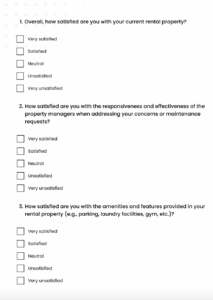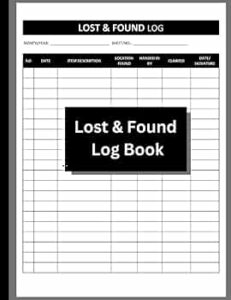In the bustling world of real estate, where every minute counts and client relationships are paramount, staying organized isn’t just a good practice—it’s absolutely essential. From initial inquiries to closing deals, real estate professionals navigate a constant stream of phone calls, each potentially holding the key to their next big success. Without a solid system in place, important details can easily get lost, follow-ups can be missed, and valuable opportunities can slip through the cracks.
That’s where the power of a dedicated call log comes into play. Imagine having a clear, concise record of every conversation, every client need, and every agreed-upon next step right at your fingertips. It transforms chaos into clarity, ensuring that no lead is left behind and every client feels heard and valued. It’s more than just a note-taking tool; it’s a strategic asset for growth and efficiency.
Why Every Real Estate Professional Needs a Dedicated Call Log
The sheer volume of communication in real estate can be overwhelming. You might speak to a dozen different people in a day—potential buyers, sellers, lenders, inspectors, and contractors. Each conversation carries critical information: a client’s specific property preferences, their budget, their timeline, or a contractor’s availability. Trying to remember all these details by memory or through scattered notes is a recipe for stress and potential errors. A structured call log provides a centralized, reliable repository for all this vital data.
Beyond simple recall, a robust call log is instrumental in nurturing leads effectively. Real estate is a long game, and not every call leads to an immediate transaction. Many interactions are about building rapport and guiding clients through their journey. By documenting each touchpoint, you can track a lead’s progression, understand their evolving needs, and tailor your follow-up strategy. This personalized approach not only increases your chances of conversion but also builds stronger, more trusting relationships with your clients.
Furthermore, a detailed record of communications offers a layer of protection and compliance. In an industry with strict regulations and high stakes, having an accurate history of your conversations can be invaluable. Should a misunderstanding arise or a dispute occur, your call log serves as an objective reference, clarifying what was discussed and agreed upon. It’s a professional safeguard that can save you time, money, and potential legal headaches down the line.
From a performance perspective, analyzing your call logs can be incredibly insightful. Over time, patterns might emerge regarding the types of calls that lead to successful outcomes, the most effective opening lines, or common client objections. This data can help you refine your sales techniques, optimize your communication strategies, and ultimately improve your conversion rates. It’s a continuous learning tool embedded right into your daily workflow.
Finally, in team environments, a shared call log system ensures seamless collaboration. If multiple agents are interacting with the same client or if one agent needs to step in for another, a comprehensive log means everyone is instantly up to speed. There’s no need to spend precious time catching up on past conversations; all the necessary context is readily available. This fosters efficiency, reduces redundancies, and presents a unified, professional front to your clients.
Key Benefits of a Structured Call Log
- Never forget crucial client details or property specifics.
- Track lead progression and engagement levels accurately.
- Enhance the efficiency and personalization of your follow-up actions.
- Streamline communication and ensure consistency across your team.
- Provide a comprehensive historical record for compliance and reference.
What to Include in Your Real Estate Call Log Template
Creating an effective call log isn’t just about jotting down notes; it’s about capturing the right information that will serve you best in the future. A well-designed real estate call log template acts as your personal assistant, prompting you to gather all the critical details from each interaction. The goal is to make it comprehensive enough to be useful, yet simple enough to be quickly filled out, even in the middle of a busy day.
Start with the basics. Every entry should clearly identify the client, their contact information, and the date and time of the call. Knowing whether it was an inbound or outbound call can also provide valuable context. Most importantly, document the explicit purpose of the call: was it an initial inquiry, a follow-up on a showing, a negotiation discussion, or something else entirely? This immediate context helps categorize the interaction and its relevance.
Next, dive into the specifics of the conversation. What were the key points discussed? Did the client express specific needs, concerns, or preferences regarding a property? Did they mention their financial situation, their moving timeline, or any other personal details that might influence their real estate journey? Equally vital is the outcome of the call. Was a meeting scheduled? Was information sent? Was a deal closed? And perhaps most crucial, what are the next steps you need to take, and when should they be completed? This section drives your proactive actions.
Consider adding fields that are unique to the real estate industry. For example, a “Property of Interest” field can link the call directly to a specific listing, making it easy to pull up relevant details later. A “Client Sentiment” field can offer a quick gauge of the client’s mood or receptiveness, helping you tailor your approach in subsequent interactions. Don’t forget a space for “Agent Initials” if you’re working on a team, or simply “Notes” for any additional qualitative observations.
Ultimately, the best real estate call log template is one that is tailored to your specific workflow and needs. While there are common elements, don’t hesitate to customize it. Whether you prefer a digital spreadsheet, a CRM system, or a physical notebook, the key is consistency. Make it a non-negotiable part of your daily routine, and you’ll quickly discover its power in transforming your client management and boosting your overall productivity.
By systematically documenting your communications, you’re not just keeping records; you’re building a valuable database of client insights and interactions. This proactive approach ensures you’re always prepared for the next conversation, that no potential lead ever falls through the cracks, and that you maintain the highest level of professionalism and client service. It’s a small effort with an enormous return, empowering you to navigate the complexities of the real estate market with confidence and clarity, paving the way for sustained success and stronger client relationships.



